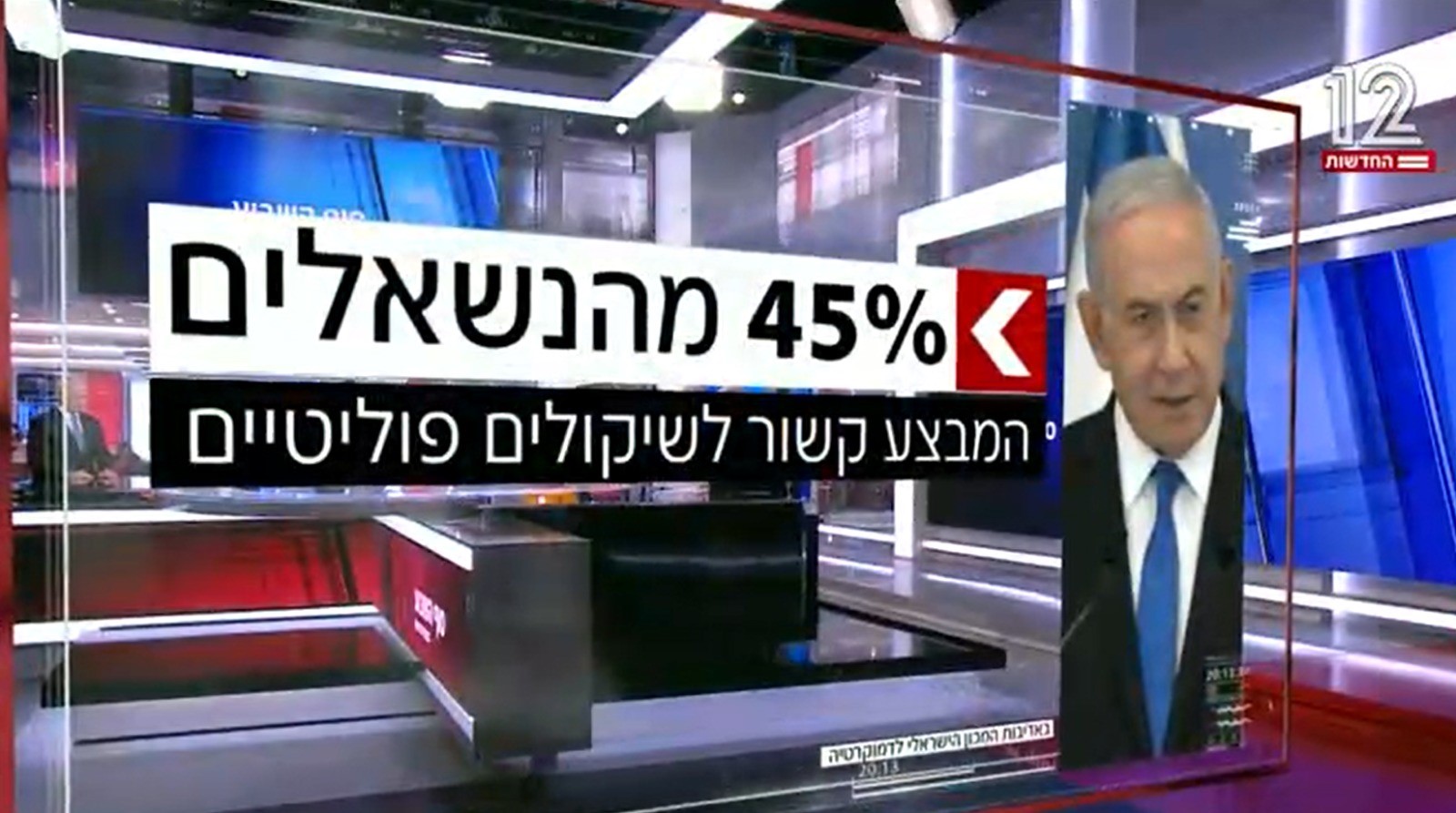After four inconclusive elections in barely two years, the first opinion polls conducted since the Gaza ceasefire indicate that the deadlock between parties loyal to far-right Prime Minister Benjamin Netanyahu and those who seek to oust him remains broadly unchanged. However, one poll does reveal some shifts within the blocs, with the centrists Yesh Atid and Blue & White parties, and the leftist Arab-Jewish Joint List gaining ground.

45% of respondents to a public opinion poll conducted by Channel 12 said that Netanyahu’s “political motivations” were connected to the deadly Gaza military operation. (Footage: Channel 12)
The poll conducted by Channel 13 predicts that if elections were held today, the Likud would win 29 seats in the Knesset (compared to the 30 it garnered in the last election held on March 21) while Yesh Atid led by MK Yair Lapid would win 22 seats in the Knesset, up from 17. Blue & White would improve its standing with 11 MKs, compared to its current 8, as would the Joint List with 8 (up from 6), Yamina 8 (up 1 from 7), the racist Religious Zionism with 8 instead of its current 5. The poll gives labor Labor 7 seats, the same as it currently has; Shas drops to 7 (from 9) as does United Torah Judaism (down from 7 to 6); similar to the decrease for Yisrael Beytenu 5 (down from 7), New Hope 5 (1 less than its current 6), and Meretz with 4 instead of 6 MKs. According to this poll, the Islamist party Ra’am, which won 4 seats in March, would fail to clear the 3.25% vote threshold to enter the Knesset if elections were held today.
To sum up, according to the Channel 13 poll, the major winners in a new election would be Yesh Atid, increasing its parliamentary representatives from 17 seats in the current Knesset to 22; Blue & White, up from 7 to 11; and the Joint List which would gain 8 seats instead of the current 6. Channel 13 also found that 45% of Israel’s electorate would prefer another round of elections, while 42% are for a unity government based on the March election; 13% expressed no opinion on the subject.
According to a Channel 12 poll, 45% of the participants said that Netanyahu had personal political motivations in the deadly military operation in Gaza. The polls of both channels found that Netanyahu would have an even harder time forming a government if elections were held today compared to his unsuccessful attempt to do so after his March victory.


